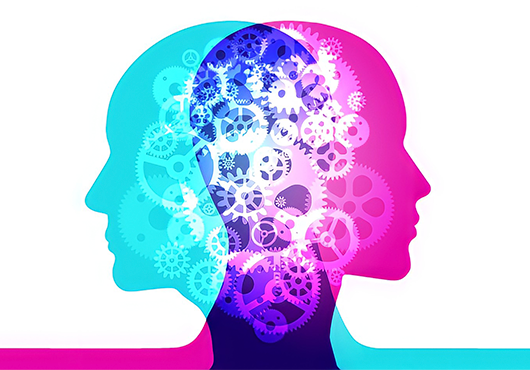
The ever-expanding world of reproductive technology continually raises ethical dilemmas worthy of discussion. The request for transfer of aneuploid embryos (embryos with chromosomal abnormalities) is one such dilemma. While the goal of in-vitro fertilization (IVF) and preimplantation genetic testing for aneuploidy (PGT-A) is typically to achieve a pregnancy with a euploid (chromosomally normal) embryo, infrequently, a patient might request transfer of an aneuploid embryo. Reproductive endocrinologists may be reluctant to proceed with such requests. [1] The likelihood of a successful pregnancy resulting from transfer of an aneuploid embryo is low, [2] thus putting the patient at risk for miscarriage and subsequent procedures. Assuming a successful pregnancy ensues and is carried to term, the child faces a possibly devastating prognosis depending on the aneuploidy. [3] Such a request thus might trigger an ethics consult. Here, we present a hypothetical case in order to explore the ethical permissibility of fertility clinics knowingly participating in the transfer of aneuploid embryos.
Current widespread disagreement about the moral status of an embryo results in a circular debate. The act of discarding embryos is a topic of ethical controversy; however, in order to discuss this complex case we will assume that all stakeholders find the process of IVF, including discarding unused embryos, to be ethically permissible.
The Case:
A 39-year-old woman with primary infertility is undergoing IVF. She opts to have PGT-A, which is used to identify chromosomal abnormalities such as Trisomy 21. As her ovarian reserve is poor, identifying euploid embryos will enhance her success rate. She and the physician agree at the outset to discard aneuploid embryos. However, when there are no euploid embryos produced, but one embryo survives and PGT-A reveals likely Trisomy 21, the patient requests to have this embryo transferred. The clinicians, motivated by a deep sense of responsibility toward their patient, the future child, and society, feel that ethically they cannot proceed with this request.
Discussion and Analysis:
This case raises the following questions:
• Is it ethically permissible for the clinic to refuse this patient’s request?
• Is it ethically permissible for the clinic to comply with this patient’s request?
1. CLINICAL CONSIDERATIONS:
PGT-A is typically employed because chromosomally normal embryos have a significantly higher chance of becoming a viable term pregnancy. Many women who seek the assistance of fertility specialists do so after experiencing recurrent miscarriages, which are commonly caused by chromosomal abnormalities. Although miscarriages are common, they are not completely benign and present both physical and psychological risks.
PGT-A is not perfect. While the science of genetic mosaicism is beyond the scope of this paper, it is possible that a chromosomally abnormal cell might be sampled from an otherwise “normal” or euploid embryo (or vice versa) because of genetic mosaicism. [4] In this way, both false positives and false negatives may occur.
It is also critical to note the typical scenarios under which requests for an aneuploid embryo transfer might arise. While these requests are relatively rare, it is even more rare for such a request to be made when the patient initially presents for fertility treatment, that is, before the patient has undergone testing. Typically, PGT-A is used in older women with recurrent pregnancy losses in order to increase the chances of establishing a viable pregnancy. It may be the case that a couple is seeking to have an unaffected child and only considers transferring an affected embryo as a last resort or afterthought when they discover that no euploid embryo exists.
Also helpful to note, the prognosis for a child with Trisomy 21 is highly variable, and may range from mild cognitive delay to severe cardiac abnormalities requiring multiple surgeries. Given this vast range in outcomes, fertility specialists worry that hopeful families may have unrealistic expectations and make an abrupt, uninformed decision under these stressful circumstances. While debate abounds about the ethical permissibility of transferring a deaf embryo, [5] unlike deaf parents requesting implantation of a deaf embryo with full understanding of what it is like to be deaf, parents requesting transfer of an aneuploid child would unlikely have this type of thorough understanding. However, this worry might be partially mitigated if proper avenues for education and counseling were in place.
Professionals who enter the field of reproductive endocrinology do so with the intention of helping women achieve term, singleton pregnancies that will result in a child with good health outcomes. It is understandable that a fertility specialist might regard transferring a Trisomy 21 embryo as facilitating a process that could result in serious adverse health consequences for the future child, and therefore find this action to conflict with her professional integrity. [6] Furthermore, as professionals who largely “treat infertility,” the providers consider not only health risks to the potential child, but also those to the mother when weighing decisions.
These providers are sensitive to the emotional and psychological toll that miscarriages may have on the patients who seek their care. Physical risks of miscarriage include the risk of dilation and curettage (D & C) and the risk of scarring of the uterus (Asherman’s syndrome), among others. Potential scarring of the uterus would further impede a woman’s fertility, so transferring a pregnancy that is likely to result in miscarriage may be seen by the provider to be contrary to the goal of treating infertility. Furthermore, many, but admittedly not all, women in situations similar to the woman in the case presented retain the option of pursuing future IVF cycles to find an unaffected embryo. Delaying this process by attempting to transfer an embryo that is unlikely to result in a live birth and may result in uterine scarring and may decrease the odds of achieving a successful pregnancy in a future cycle.
2. ETHICAL CONSIDERATIONS:
Autonomy is often regarded as paramount in Western medical ethics, but how far does this extend? As reproductive technologies continue to progress, overemphasis on autonomy may prove thorny. It is reasonable that in some circumstances, physicians be able to place restrictions on patient autonomy in order to prevent harm. Likewise, professional integrity must also be considered. The role of a physician is not, and should not be, to accede to any and all patient demands.
Reproductive autonomy is a hotly debated ethical topic that has led to the creation of various theories about what one ought to consider when making reproductive choices. [1] The Principle of Procreative Beneficence, a term coined by bioethicist Julian Savulescu, posits that we have an ethical obligation to produce the best possible children. [7] Some might interpret this case in light of this concept and conclude that it is ethically impermissible to participate in the creation of a child who will face certain limitations and legitimate health concerns throughout her life.
Alternatively, this patient’s decision to pursue PGT-A before implantation may actually be the course most in keeping with the Principle of Procreative Beneficence. That is, if she does not have a euploid (“normal”) embryo, an embryo with Trisomy 21 might be her “best possible” future child. Declining PGT-A and implanting a genetically unexamined embryo may still result in a child with Trisomy 21, but in this case the clinic would typically comply and feel less morally responsible given their action was not intentional. When examined in this way, pursuing PGT-A with the goal of transferring an unaffected embryo—but, if unavailable, transferring an affected embryo—may align with Savulescu’s notion of one’s moral responsibility to create the “best possible” child.
While Savulescu makes an interesting case regarding our moral obligations to future generations, some express concerns that the Principle of Procreative Beneficence may in itself be unethical by devaluing the lives of people with disabilities. [8], [9] In “The Nonidentity Problem, Disability, and the Role Morality of Prospective Parents” David Wasserman argues, “The Principle of Procreative Beneficence, unintentionally but unavoidably, rests on placing lower moral value on the disabled”. [6] Performing PGT-A in order to select against chromosomal abnormalities may signal preference for a child without Trisomy 21. However, the suggestion that producing a child with Down syndrome is ethically wrong expands on an individuals’ preference against disability to make a normative ethical claim that disabled lives ought not to be knowingly created. Such a generalized statement may be quite damaging to both the disabled community and the culture at large.
The Principle of Procreative Beneficence does not in any way benefit the potentially disabled child, unless the life of that individual is determined not to be worthwhile. With respect to the individual child, the choice is not whether it is better for them to be disabled or not, it is whether it is better for them to be disabled or to not exist whatsoever. “The impaired individual would be born in the only state he could be born in and with what is as likely as anyone else’s to be a worthwhile life.” [5]
While it has been argued that “it proves very difficult to frame a complaint for the impaired child” the Principle of Procreative Beneficence can be used to argue for the overall welfare of society. [6] Indeed, fertility clinics may feel a sense of moral responsibility to not participate in the creation of lives which some might consider societal burdens. Savulescu asserts, “Selecting the most advantaged child would make the outcome better, even if it is not better for the child created.” [10] Although most parents say that their disabled child has positively impacted their lives, some would argue that raising a disabled child increases the demands on parents, siblings, and society. Whether or not one agrees with this, the argument that we have a moral obligation not to have disabled children because they are believed to be burdensome to society is incredibly reminiscent of the eugenics movement. [2] Savulescu himself defines eugenics as “selective breeding to produce a better population.” [2]
Many use “quality of life” to invoke the principles of beneficence and non-maleficence in this debate. While Trisomy 21 may present certain burdens and barriers for a person and family, many feel that life with such a condition still constitutes a life worth living. As a society, we might be too focused on a belief that disability is undesirable to acknowledge that many people with disabilities report a good quality of life. [11] Rebecca Bennett argues this “may simply be a ‘yuk’ reaction that when examined does not indicate something morally problematic.” [12] Similar reactions have certainly led us astray in the past with regards to discrimination based on race and sexual orientation. We must be careful not to continue to let these types of potentially misguided intuitions control our behavior and medical policies.
Conclusion and Recommendations:
It has been argued that any use of “genetic technologies to accomplish desired genetic ends…[is] eugenics, for good or for ill.” [13] We live in a society dominated by the belief that individuals ought to be allowed to make their own choices. We embrace PGT-A and IVF on the basis of prioritizing reproductive autonomy, so it seems inconsistent to then restrict a woman’s autonomy by impeding her from transferring her only available embryo, so long as that embryo is expected to have a life worth living. “Life worth living” is a value-based judgment and it seems as though the parents are the most appropriate stakeholders to make that judgment for their own family.
That being said, we believe fertility specialists, in addition to being autonomous individuals as well, have a right to defend certain standards of professional integrity. Clinicians should not be forced to participate in practices that conflict with their clinical judgment or personal morality. It is reasonable that some clinicians might feel uncomfortable about their role in creating a pregnancy that, if successful, will knowingly result in a disabled child who will suffer from a variety of comorbid conditions. Further, given the high risk of miscarriage and its downstream consequences, a clinician might conclude transferring an aneuploid embryo is simply bad medicine.
From our perspective, clinician hesitancy seems to reflect genuine concern about potentially devastating clinical risks and a perceived inability to fully inform patients, rather than purposeful discrimination against the disabled community. [4] One can value the lives of disabled persons equally but still refuse to engage in practices that increase risk of harm to the patient and their child. Refusing to participate in such care by no means indicates that the care provider does not value disabled lives and it is uncharitable to interpret this position in such a way.
Clinics should be clear with patients about whether transferring an affected embryo is something they would consider if no unaffected embryos were available. By establishing this understanding from the outset, there will be more time for thorough counseling, for example, to help parents understand and appreciate what having a child with Down syndrome might entail. If a clinic were to go forward with transfer of aneuploid embryos, thorough education and counseling is essential. [6] Alternatively, if a provider or clinic is unwilling to transfer genetically affected embryos, patients who would consider this option could seek care elsewhere.
Louise P. King, MD, JD, can be reached at: lpking@bidmc.harvard.edu
[1] Daar, Judith. "A clash at the petri dish: transferring embryos with known genetic anomalies." Journal of Law and the Biosciences 5, no. 2 (2018): 219-261. https://doi.org/10.1093/jlb/lsy015.
[2] Fragouli, Elpida, Samer Alfarawati, Katharina Spath, Dhruti Babariya, Nicoletta Tarozzi, Andrea Borini, and Dagan Wells. "Analysis of implantation and ongoing pregnancy rates following the transfer of mosaic diploid-aneuploid blastocysts." Human Genetics 136, no. 7 (2017): 805-819. https://www.ncbi.nlm.nih.gov/pubmed/28393271.
[3] O’Connor, Clare. "Chromosomal Abnormalities: Aneuploidies." Nature Education 1, no. 1 (2008): 172.
[4] Tarkan, Laurie. "Screening for abnormal embryos offers couples hope after heartbreak." New York Times (New York, NY) November 22, 2009. (reporting 30% of embryos have mosaicism, leading to a 4% rate of misdiagnosis using PGD). See Daar, Judith. "A clash at the petri dish: transferring embryos with known genetic anomalies." Journal of Law and the Biosciences 5, no. 2 (2018): 219-261. https://doi.org/10.1093/jlb/lsy015.
[5] Hinsliff, Gaby and Robin McKie. "This couple want a deaf child. should we try to stop them?" The Guardian (London, United Kingdom) March 9, 2008. https://www.theguardian.com/science/2008/mar/09/genetics.medicalresearch.
[6] Gronowski, Ann M., Richard T. Scott, Jr., Arthur L. Caplan, and Lawrence J. Nelson. "The ethical implications of preimplantation genetics." Clinical Chemistry 60, no. 1 (2014): 25-28. https://doi.org/10.1373/clinchem.2013.202515.
[7] Savulescu, Julian. "Procreative beneficence: why we should select the best children." Bioethics 5, no. 5-6 (2001): 413–426. https://doi.org/10.1111/1467-8519.00251.
[8] Bennett, Rebecca. "The fallacy of the principle of procreative beneficence." Bioethics 23, no. 5 (2009): 265–273. https://doi.org/10.1111/j.1467-8519.2008.00655.x.
[9] Wasserman, David. "The nonidentity problem, disability, and the role morality of prospective parents." Ethics 116, no. 1 (2009): 132–152. https://doi.org/10.1086/454369.
[10] Savulescu, Julian and Guy Kahane. "The moral obligation to create children with the best chance of the best life." Bioethics 23, no. 5 (2009): 274–290. https://doi.org/10.1111/j.1467-8519.2008.00687.x.
[11] Friedersdorf, Conor. "‘I am a man with Down Syndrome and my life is worth living.’ Congressional testimony that illuminates what a developmental disability means—and doesn’t mean." The Atlantic (Boston, MA) October 30, 2017. https://www.theatlantic.com/politics/archive/2017/10/i-am-a-man-with-down-syndrome-and-my-life-is-worth-living/544325/.
[12] Bennett, Rebecca. "When intuition is not enough. Why the Principle of Procreative Beneficence must work much harder to justify its eugenic vision." Bioethics 28, no, 9 (2014): 447–455. https://doi.org/10.1111/bioe.12044.
[13] Holland, Suzanne. "Selecting against difference: assisted reproduction, disability and regulation." Florida State University Law Review. Florida State University. College of Law 30, no. 2 (2003): 401–410.


